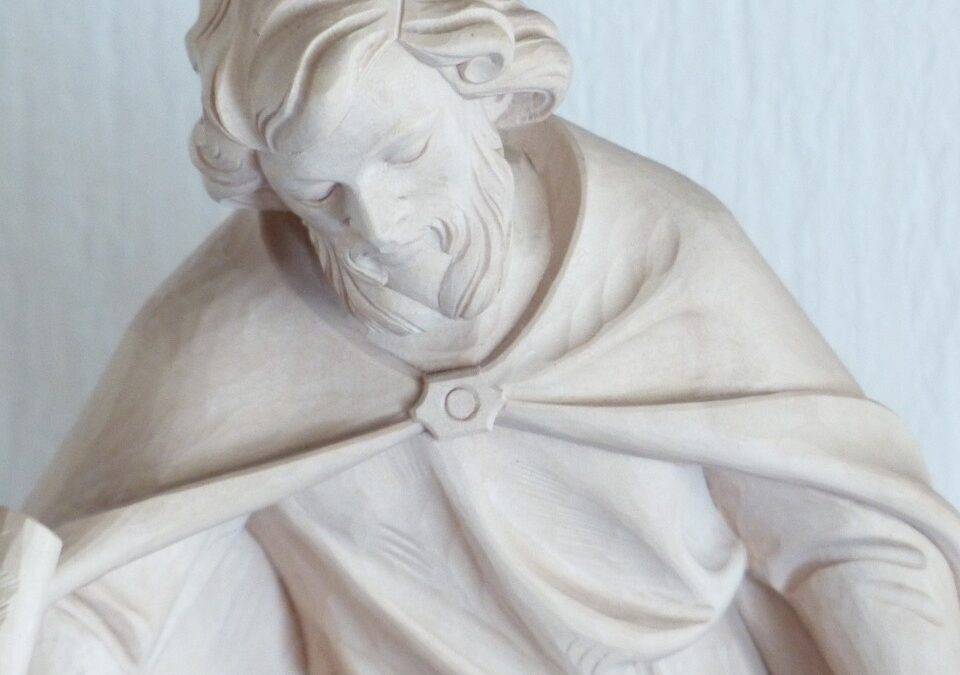
Mar 21, 2025 | DAILY BREAD
Saturday of the 2nd week of Lent
First reading Micah 7:14-15,18-20
In this season of Lent, the words of the prophet Micah offer a powerful invitation to contemplate the boundless mercy of God. “What god can compare with you?” he asks—pointing us to a divine love that forgives, heals, and restores. God does not brood over our failures but delights in showing mercy, embracing us not with condemnation but with compassion. Lent, then, is not merely a time for self-examination and repentance, but a journey back to the heart of a God who casts our sins into the depths of the sea. God’s forgiveness is not merely a wiping clean of a slate; it is a re-creation, a restoration of dignity, a return to communion. In Lent, as we bring our sins to light, we discover that God is not a stern judge holding them against us, but a merciful Father eager to cast them into the depths of the sea. Such is the love that meets our repentance with grace and our brokenness with healing, inviting us to walk once more in the freedom of being forgiven. Let’s reflect: Lent is a journey into heart of the Lord who always forgives unconditionally.
Don Giorgio

Mar 21, 2025 | DAILY BREAD
Friday of the 2nd week of Lent
First reading Genesis 37:3-4,12-13,17-28
The story of Joseph and his brothers in Genesis 37 reveals how human jealousy can lead to grave injustice, yet God’s plan remains steadfast. Joseph’s brothers, consumed by envy, sought to rid themselves of him, selling him into slavery. However, what they intended for harm, God would ultimately use for a greater purpose. This Lenten season invites us to reflect on the ways jealousy can take root in our hearts, leading us away from God’s will. Jealousy blinds us, distorting our perception of others and driving us to act against love and truth. Lent is a time of purification—a call to recognize and surrender these tendencies, allowing God’s grace to transform our hearts. By doing so, we align ourselves with His plan, trusting that even when we face trials, God is at work, bringing about redemption and fulfillment beyond what we can see. Let’s reflect: Lent is purifying ourselves of jealousy which provokes wickedness against the plan of God.
Don Giorgio

Mar 20, 2025 | DAILY BREAD
Thursday of the 2nd week of Lent
First reading Jeremiah 17:5-10
The first reading from Jeremiah 17:5-10 serves as a powerful reminder of the consequences of placing our trust in human strength and material security rather than in the Lord. When we rely solely on worldly assurances, our hearts gradually turn away from God, making us blind to His blessings and isolating us from true communion with Him and others. Without divine trust, our lives become restless, filled with anxiety, and lacking in the deep harmony that only faith can bring. Have we shifted our confidence to human power, wealth, or status, leaving God on the margins of our lives? This season of repentance and renewal calls us to realign our hearts, uproot misplaced dependencies, and rediscover the peace that comes from trusting fully in the Lord, who alone is our true source of strength and stability. Let’s reflect: Lent is the sacred opportunity to examine where our trust truly lies.
Don Giorgio

Mar 18, 2025 | DAILY BREAD
Saint Joseph, husband of the Blessed Virgin Mary – Solemnity
Readings 2 Samuel 7:4-5,12-14,16; Romans 4:13,16-18,22; Gospel
Matthew 1:16,18-21,24
The Feast of St. Joseph invites us to reflect on his unique role in salvation history as the silent yet steadfast guardian of God’s promise. In 2 Samuel, we hear of God’s covenant with David, a promise of a lasting kingdom fulfilled in Christ. St. Paul, in Romans, reminds us of Abraham’s faith, believing in God’s word even when fulfillment seemed impossible. In the Gospel of Matthew, we see how Joseph, like Abraham, trusted in God’s plan, accepting the divine mission of protecting Mary and Jesus. Joseph’s obedience, though silent, speaks volumes—his life is a testament to faith in action, aligning with God’s eternal design for humanity’s salvation. Through Joseph, we see the convergence of Old Testament promises and New Testament fulfillment, embodying the faithfulness required to participate in God’s plan for humanity’s redemption. The figure of St. Joseph embodies the eternal promise of God for us to be His people, personifies the faith of Abraham who believe in the Word of God, and embraces the plan of God for the humanity. Embracing the will of God without questions. Let’s reflect: How much am I personally related to St. Joseph in accepting God’s plan without questions?
Don Giorgio

Mar 18, 2025 | POSITIVE IMPULSES
Thoughts inspired by St. Joseph…To be silent and eloquent at the same time is to live in the fullness of both presence and expression. Silence is not merely the absence of speech; it is the quiet receptivity that allows one to grasp the whole picture, to perceive reality in its depth without distortion. It is the wisdom of listening, of waiting, of allowing truth to unfold beyond the limitations of words. Yet true eloquence is not opposed to this silence—it is born from it. It is the ability to express what has been deeply understood, to give voice to what one has interiorly embraced. Eloquence is the art of being fully present, of becoming part of the whole picture rather than standing apart from it. In this way, silence and eloquence are not opposites, but two dimensions of a single reality: the art of truly being.
Don Giorgio





